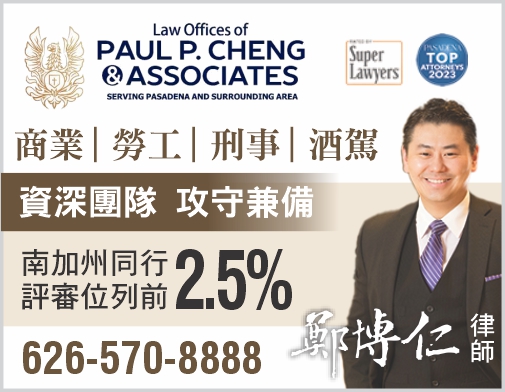CHAPTER 7 OR 13 VS. DEBT CONSOLIDATION AND DEBT SETTLEMENT, WHICH IS BETTER?
I’ve recently gotten a couple of clients who have been on Debt consolidation and are now ready to jump into Chapter 7 or Chapter 13.
First let’s distinguish Debt consolidation from Debt settlement. No, they are not the same thing actually. However, both Debt consolidation and Debt settlement require negotiations with creditors because the aim of both is to either reduce payment by reducing interest rate, or settling the debt owed by less than what is owed. Does this sound complicated? It’s not really.
Let’s take a look at one client’s case. He owes $60K of credit cards, to 10 different creditors. He pays a minimum of $1,900 monthly to keep all these cards current. The interest rate on average for these cards is 21%. If client keeps on paying the minimum of $1,900 at 21% p.a., it may take him more than 30 years to pay the principal down to zero. In other words, he would have paid $684,000 in 30 years to pay off $60,000 of credit cards off in full. You don’t need to be a “stable genius” like you know who, to figure out that that’s a bad deal for you and your family. Paying $684,000 over 30 years to pay off $60,000 of credit card debt is just plain stupid as stupid does according to Forrest Gump. As someone would say, “Sad!” That’s the same as cutting off your two arms and two legs plus your two ears and a nose to pay $60K of credit cards.
In consolidation, the consolidator, will try to get each one of your creditors to accept a lower monthly payment by agreeing to accept a lower interest. The effect of the lower interest is to shorten the amount of time it takes to pay off the principal because more principal gets paid with every payment. You pay the consolidator a lump sum amount, which he distributes to each creditor after the creditors have agreed to reduce their interest rate.
Debt settlement on the other hand, is where the negotiator, negotiates with your creditors to accept an amount that is less than what you owe as a final settlement of your debt. You then pay the negotiator who pays off the creditor.
So both consolidation and settlement are done by negotiation with your creditors. There is no court or judge involved in the process. Thus, both are done by mutual agreement with the creditors.
One problem with consolidation or settlement is what happens when not all your creditors agree to consolidation or settlement. Those who do not agree can just decide to sue you directly to collect their money and thereafter, levy your bank accounts, garnish your wages and put a lien on your house and cars. So who wants this kind of legal hassles? There is no peace of mind. It’s like an open wound that keeps on festering.
And, any amount reduced or saved becomes your income, so you’ll have to answer to the IRS for the additional income you made by reducing debt payment. Nobody wants to have this kind of problem with the IRS. Failure to disclose the income so derived may subject you to audit and penalties. Another set of problems arises.
On the other hand, Chapter 7 and Chapter 13 are bankruptcy procedures that discharges debt. The discharge order wipes out your debt and gives you a fresh start in life in Chapter 7, or reorganizes your finances by allowing you to pay less than what you owe, through the bankruptcy court system.
Upon filing Chapter 7 or 13, the court issues an automatic stay order against all of your creditors. It says that your creditors cannot call you, file a lawsuit against you, stop wage garnishments, stop bank levies, stop liens against your house and personal assets. The stay gives you immediate peace of mind by ordering all your creditors to stop whatever they are doing to collect their money as soon as the case is filed. No more calls in the middle of the night or early morning. No more letters and lawsuits to collect. No more wage garnishments. No more creditor harassment day or night, forever. Peace of mind immediately.
What happens is the Bankruptcy court comes in and protects you and your assets from creditors and eventually, the court discharges or wipes out your legal liability to pay the debt. What can be better than this?
You need to exempt your assets, however. There are two legal systems to exempt assets in bankruptcy. Check with an experienced bankruptcy lawyer. He or she knows what to do to exempt your assets. You get to keep your house, your cars, your retirement accounts, and pretty much everything you own as long as you are able to exempt them legally. So, you keep all your assets, but discharge or wipe out all your debts in one stroke. Before the discharge order is issued, and after the case is filed, your creditors cannot touch you or your assets. They can’t even call you. It’s like having Bruce Lee as your bodyguard. You become invincible. You then get a fresh start in life with no debt while keeping all your assets.
In Chapter 13, you might pay a portion of your debt, depending on the value of your non-exempt asset. In the above example, if you had a house with non-exempt equity of $10K, you would only pay $170 a month for 60 months. After making all payments, the court will wipe out the balance of $50K. In other words, instead of paying $1900 a month for 30 years, you only pay $170 a month for 5 years, or a total of $10K.
You pay the $170 to a court supervised Chapter 13 trustee, an officer of the court. He or she distribute or pays the $170 to all of your creditors. You pay only 16% of your total debt of $60K. And the trustee cannot run away with your payments. There is no such thing as a Chapter 13 trustee absconding and running away with your money. Whatever you pay under your plan is guaranteed to pay your creditors, and the court will wipe out the rest of the unpaid debt as long as you finish your plan payments on time.
Once you’re done with your bankruptcy, as long as you pay your new debts on time, your credit score will improve very fast. On the second year from filing, you credit score may already reach 600. On the third year from filing, your credit score may already reach 670. That’s how fast your score will improve as long as you handle new debt with timely repayment. You can buy a car as soon as you obtain your discharge. Most car dealers finance debtors who have just emerged from Bk. You need to bring your discharge order. Expect a higher car loan interest if you buy a car as soon as you get your discharge, maybe 19%.
It’s a no brainer. Even Walt Disney filed for Chapter 7 twice before his Disneyland business succeeded. The owner of Hershey chocolates, the world’s largest chocolate business, also filed for Chapter 7 once before his business succeeded. Bankruptcy is the best and most effective way to get rid of debt and to start fresh in life without accumulated debt. Just ask Mr. Disney and Mr. Hershey. They both became billionaires after starting fresh in life without debt through bankruptcy. Without Chapter 7, there would be no Disneyland or Hershey chocolates. Our world would be a sadder place indeed!
“LET NO DEBT REMAIN OUTSTANDING EXCEPT THE CONTINUING DEBT TO LOVE ONE ANOTHER” PROVERBS 22:7
Lawrence B. Yang is a graduate of Georgetown University with a Master’s Degree in Law and specializes in bankruptcy, business, real estate and civil litigation. He speaks English, Mandarin and Fujien and has successfully represented thousands of clients in California, including companies overseas. Please call Angie, Barbara, or Jess at (626) 284-1142 for an appointment at 1000 S. Fremont Ave., MAILSTOP 58 BUILDING A-1 SUITE 1125, Alhambra, CA 91803 OR at 20274 Carrey Road, Walnut, CA 91789.
图片翻摄自网路,版权归原作者所有。如有侵权请联系我们,我们将及时处理。
 點評
點評 微信
微信 微博
微博








